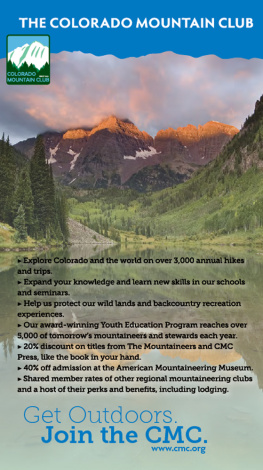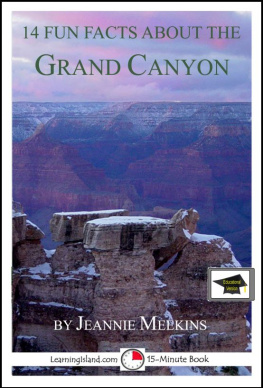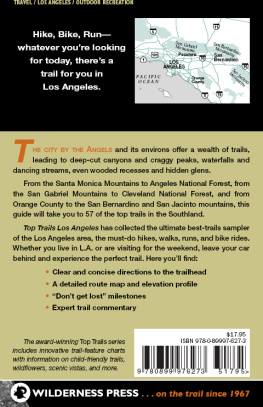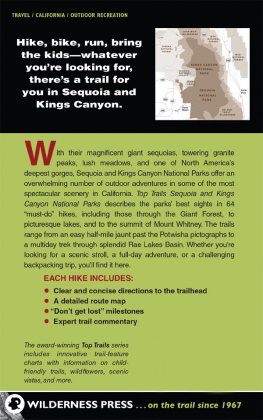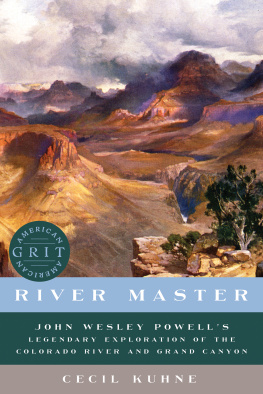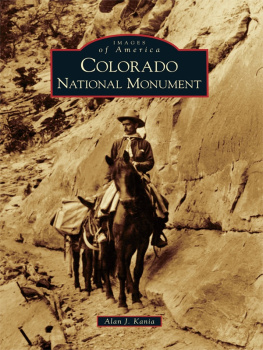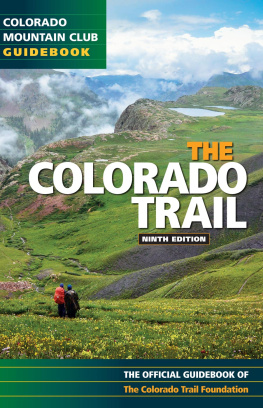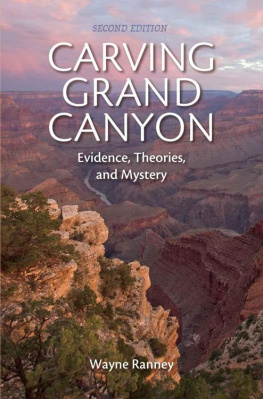A Mountain
A small cabin stands in the Glacier Peak Wilderness, about a hundred yards off a trail that crosses the Cascade Range. In midsummer, the cabin looked strange in the forest. It was only twelve feet square, but it rose fully two stories and then had a high and steeply peaked roof. From the ridge of the roof, moreover, a ten-foot pole stuck straight up. Tied to the top of the pole was a shovel. To hikers shedding their backpacks at the door of the cabin on a cold summer eveningas five of us didit was somewhat unnerving to look up and think of people walking around in snow perhaps thirty-five feet above, hunting for that shovel, then digging their way down to the threshold. Men from the Chelan County Snow Survey use the cabin in winter while they measure snow depths and snow densities, and figure how much runoff to expect at the time of thaw. Because of the almost unbelievable amount of snow that can accumulate in that part of the State of Washington, what they do there is a vital matter to the people below and even far beyond the mountains.
What we were doing there was something else again. We were tired. We had walked seven and a half miles uphill since three that afternoon. One of us was in his sixties, another in his fifties, and all of us saw the cabin as a haven from what obviously would have been very cold ground. Until midsummer, the trails had been impassable, and to make the trip we had had to wait for the winter snows to melt. An entry in the register in the cabin said that snow had fallen one week earlier, August 5th. But we had been drawn to the Cascades in part because a great many people believed that they were the most beautiful mountains in the United States. A somewhat smaller and, on the whole, more parochial group felt that these huge, conical peaks, raised in volcanic fire and later carved by moving ice, were the most beautiful mountains in the world. In 1964, the United States Congress set aside this region and others as permanent wilderness, not to receive even the use given a national park, not to be entered by a machine of any kind except in extreme emergency, not to be developed or altered or lumberedforevermore. Within the structure of this so-called Wilderness Act, however, was a provision known as the mining exception: all established claims would remain open to mining, and new claims could be made in any wilderness until 1984. At the foot of Glacier Peak, in the center of this particular wilderness, is a copper lode that is half a mile from side to side. The Kennecott Copper Corporation has a patented claim on this deposit and could work it any time. We wanted to have a look at the region while it was still pristine. The others left it to me to add their names to the register in the cabin: Charles Park, geologist, mineral engineer, who believes that if copper were to be found under the White House, the White House should be moved; David Brower, who has been described by Stewart Udall as the most effective single person on the cutting edge of conservation in this country, leader of a conservation organization called Friends of the Earth; and Larry Snow and Lance Brigham, medical students from the University of Washington, who were along to help with the logistics of the trip and perhaps incidentally to give first aid.
A mouse ran out from under the cabin, made a fast move among the packs, and went back under the cabin. We collected firewood and water. There was a cascade, white and plummeting, beyond the cabin. We changed into warmer clothes and lighter shoes. Brower, who hiked in twill shorts and a T-shirt and soft gray Italian boots, put on a long plaid shirt, trousers, and a pair of basketball shoes. Although he was out of shape, Brower was a prepossessing figure. He was a tall man. He had heavy bones, thick wrists, strong ankles. And he had a delicate, handsome, ruddy face, its features all finely proportioned but slightly too small, too refined, for the size of his frame, suggesting delicacy. His voice was quiet and persuasively mellifluous. He had an engaging smile and flashing white teeth. He was in his late fifties, and he had a windy shock of white hair. Brower had dropped out of college when he was nineteen, and disappeared into the Sierra Nevada. He had spent his life defending mountain ranges and what, by extension, they symbolized to him, and one of the ironies of his life was that his love of the mountains had long since drawn him away from them and into buildings impertinently called skyscrapers, into congressional corridors, into temporary offices in hotel rooms, into battle after battle, and out of shape. (In the idiom of conservation, battle is the foremost term for what conservationists do, and conservationist publications are battle tracts.) Browers skin was pink from the work of the climb, and when he was taking off his soaked T-shirt he had revealed a fold across his middle. The mouse ran out again from under the cabin, looked around, its nose vibrating, and retreated.
Lance Brigham said, Stick your head out once more, mouse, and its curtains for you.
Brower said softly, Its we who are the intruders.
Park had been taking off his bootsmade in Canada, of heavy leatherand was putting on a pair of sandals. He grinned cryptically. He, too, had a shock of white hair. He was in his sixties, and he was as trim and hard as a college athlete, which he had once been, and nothing about him suggested that he had ever been out of breath. From his youth to the present, he had spent a high proportion of his life in the out-of-doors, and a high proportion of that in wilderness. Going up the trail that afternoon, with his geologists pick in his hand, he whacked or chipped at half the boulders and rock faces we passed, and every once in a while, apparently for the sheer hell of it, he rapped the picks hammer end on the stump of a tree that had been taken to clear the trail.
Thats a habit I developed long agobanging on rocks and stumps, he said.
Why?
Kodiak bears. I never wanted to take one by surprise. The same is true in Africa of leopards and gorillas. In other words, never take an animal by surprise.
Park spoke slowly, not because he was hesitant but simply in a measure that seemed compatible with geologic time. He had an almond face, alert gray eyes, and a mobile smile that tended to concentrate in one or the other corner of his mouth. He was even taller than Brower, and he wore khaki from head to foot. He had a visored khaki cap.
Not far into the mountains from their eastern extremity, at Lake Chelan, we had come to an oddly formal landmark. It was a sign that said, You Are Now Entering the Glacier Peak Wilderness Area. In other words, Take one more step and, by decree, you will enter a preserved and separate world, you will pass from civilization into wilderness. Wilderness was now that definable, that demonstrable, and could be entered in the sense that one enters a room.
Park said, Will they let me carry my pick in there?
Until 1984, said Brower.
We stepped across the line. I said, If we get lost in here with that pick, we may discover a new copper deposit.
Brower said, If you make a new discovery, Im here to see that you dont get out.
We moved on into the wilderness. The trail was dusty. It was covered with a light-brown powder too fine to be called sand. Park said it was glacial flourfinely ground rock coming out of the ice, ice of the past and ice of the present. Far above us in the high cirques were glaciersthe Lyman Glacier, Isella Glacier, Mary Green Glacier, and, perhaps prophetically, the Company Glacier on Bonanza Peak. The sky was blue and cloudless, a day to remember in the Cascades. Brower said he was disappointed that it was not raining. He explained that he did not like dry duff but preferred the feel and the beauty of a wet and glistening forest, vaporous and dripping. He said that he hoped we would be fortunate enough to have a good rain before the trip was over. He labored slowly up the trail, taking it conservatively, eating thimbleberries and huckleberries as he moved along.








